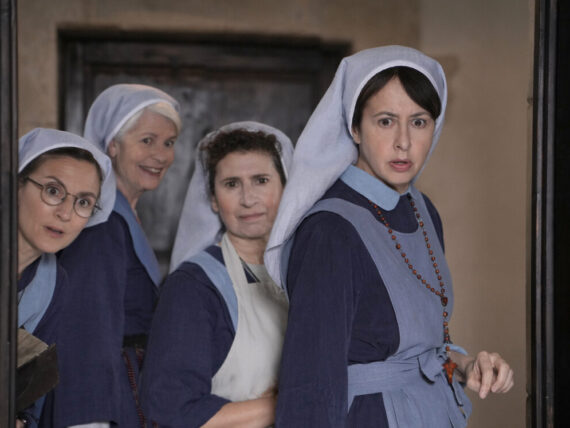Review of Call Me By Your Name, by Keiran Rae. In the cinema from 1 – 6 December.
‘Film is a mirror of reality and it is a filter’ – It’s an interesting sentiment spoken during the film adaptation of André Aciman’s 2007 novel Call Me By Your Name that seems to communicate its intention; to reflect issues and realities in our own world around sexuality and romance, and to sieve out the malice and ignorance that often accompanies it.
Luca Guadagnino steps in to direct the movie that follows the blossoming romantic relationship that develops between our lead, Elio Perlman, a quick-witted bibliophile played by Timothée Chalamet, and Oliver, an American student over at the Perlman’s residence in what the film pens as ‘somewhere in Italy.’ Hot summers, an idyllic countryside and a town with nothing to do; the stage is set to present this profound love story between two unlikely protagonists.
On that first point of Call Me By Your Name reflecting issues and realities in our world, Elio and Oliver initially tip-toe around their growing feelings for each other in a quiet paranoia surrounding the stigma of homosexuality; a prominent issue in the 80’s when the film is set, and one no less pertinent today in our own society. James Ivory’s sensitive script works in concert with Guadagnino’s direction, crafting a subtle development of Elio and Oliver’s relationship through often unspoken scenes of longing, and ultimately towards the main message of both book and film; acceptance of who you are. Guadagnino has said himself that he “gave a great deal of importance to the concept of falling in love”, and as a character in the film echoes: “We rip out so much of ourselves to be cured of things faster than we should that we go bankrupt by the age of thirty and have less to offer each time we start with someone new.”
And this is very much a mirror of reality. Some backlash surrounding the film’s release has underscored the competition against acceptance. Guadagnino has come up against resounding disbelief over his casting of the homosexual protagonists as two heterosexual men, with Hammer coming under personal criticism on being described as a ‘beautiful, pedigreed white man’ making him an insult to portray the issues around the film. These are separate debates that don’t even cover other problems in the world like homophobia, but they do underscore a societal attitude that calls on us to ‘rip out so much of ourselves’ to portray a perfectly accepted whole; it’s this attitude that Elio and Oliver spend the film running from.
But it’s also an attitude that is filtered. We’re presented with an almost idyllic world in Call Me By Your Name, not just from the setting itself, but what it means. With the age of consent at 14 in Italy, the teenagers are all firmly treated like adults; their issues and feelings translate across all ages, and they’re all taken very seriously. Homosexuality, or rather honesty with one’s feelings, is accepted by most characters, and Elio’s friends are quick to forgive and support after some of his more elusive and cold treatment for them as he pines for Oliver. It’s all too good to be true, filtering out the malice to shape a largely comforting environment where our protagonists don’t need to rip much of themselves out at all.
It’s nice, it’s right… it’s also a bit hollow. In fact, somewhere amongst the countless swimming and cycling scenes the film tries your patience, daring you to stick it out with not much of a carrot at the end of that stick. But what is there are game performances from Chalamet and Hammer, neither of whom hold back and give important, candid performances to a relationship rarely seen so honestly and passionately on screen.
Call Me By Your Name is an important, well-directed and thoughtful film. It achieves exactly what it wants to do, even if it at points it doesn’t quite do what I wanted it to, but I would never ask it to rip out parts of itself to cure that.









Comments
Comments are closed.